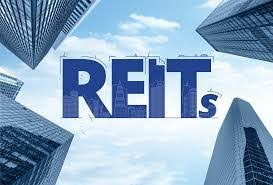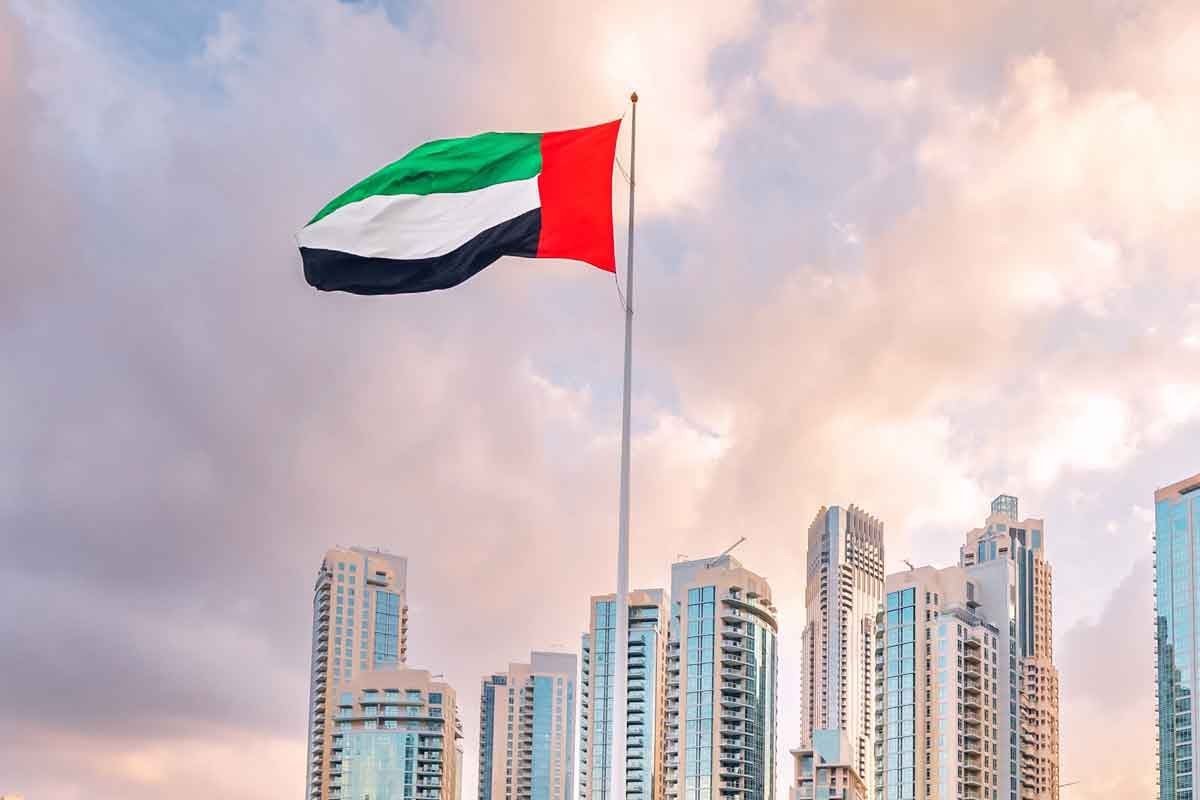Now Reading: Real Estate Investment Trusts (REITs) in the UAE: Tax Benefits and Opportunities in 2025
-
01
Real Estate Investment Trusts (REITs) in the UAE: Tax Benefits and Opportunities in 2025
Real Estate Investment Trusts (REITs) in the UAE: Tax Benefits and Opportunities in 2025

Table of Contents
The UAE’s real estate market, a global investment hotspot, recorded 226,000 transactions valued at AED 761 billion (USD 207 billion) in Dubai in 2024, a 36% year-on-year increase, according to the Dubai Land Department (DLD). With rental yields averaging 6-8% and property prices projected to rise 5-10% in 2025, Real Estate Investment Trusts (REITs) offer U.S. investors a tax-efficient, low-maintenance way to access this dynamic market. The UAE REIT market, estimated at USD 10.3 billion in 2024, is set to grow to USD 11.22 billion in 2025, with an 8.24% CAGR through 2030, per Mordor Intelligence.
Bolstered by corporate tax exemptions and robust regulations from the UAE Securities and Commodities Authority (SCA), Dubai Financial Services Authority (DFSA), and Abu Dhabi Global Market (ADGM), REITs provide diversified exposure to commercial, residential, and sustainable properties. This guide outlines the tax benefits, investment opportunities, and strategic considerations for U.S. investors in UAE REITs in 2025, emphasizing real estate applications.
Tax Benefits of UAE REITs in 2025

The UAE’s investor-friendly tax regime, combined with specific REIT exemptions, enhances returns for U.S. investors. Key tax benefits, as outlined by the UAE Ministry of Finance and Cabinet Decision No. 142 of 2024, include:
1. Corporate Tax Exemption
REITs meeting specific conditions are exempt from the UAE’s 9% corporate tax, introduced in 2023, per Federal Decree-Law No. 47 of 2022 and detailed in Dentons’ analysis. Conditions include:
- Asset Value: Real estate assets (excluding land) must exceed AED 100 million (USD 27.2 million).
- Asset Composition: At least 70% of assets by value must be income-generating real estate or land.
- Ownership Structure: At least 20% of share capital must be held by two or more institutional investors or traded on a recognized stock exchange (e.g., Nasdaq Dubai, Dubai Financial Market).
- Public Accessibility: REIT interests must be listed on a UAE or approved foreign stock exchange or widely marketed to investors.
- Anti-Avoidance: The REIT’s primary purpose must not be tax evasion.
This exemption reduces operational costs, allowing REITs to distribute higher dividends (minimum 80% of net profits, per SCA regulations). For example, Emirates REIT, managing USD 842.7 million in assets, leverages this to offer competitive yields.
2. No Capital Gains or Income Tax

The UAE imposes no capital gains tax on REIT share sales or income tax on dividends, unlike the U.S., where capital gains are taxed up to 20% and dividends at individual rates. A U.S. investor earning AED 100,000 (USD 27,200) in REIT dividends incurs no UAE tax, compared to USD 20,000 in U.S. taxes (at 20%), maximizing returns.
3. VAT Exemptions
Residential property income from REITs is VAT-exempt, while commercial property rentals incur 5% VAT, recoverable through tenant charges, per Federal Decree-Law No. 8 of 2017. This minimizes tax burdens for residential-focused REITs like The Residential REIT.
4. No Withholding Tax
The UAE does not levy withholding tax on REIT dividends paid to foreign investors, ensuring U.S. investors receive full distributions, unlike in jurisdictions with 10-30% withholding rates.
5. Temporary Listing Relief
A May 2025 Ministry of Finance decision temporarily eases listing requirements for REIT tax exemptions, allowing unlisted REITs to qualify if they meet other criteria, per X posts by @regfollower. This broadens access to tax benefits for private REITs in 2025.
Investment Opportunities in UAE REITs for 2025

UAE REITs offer diverse, high-yield opportunities across real estate sectors, regulated by SCA (onshore), DFSA (DIFC), and FSRA (ADGM). Key opportunities for U.S. investors include:
1. Publicly Listed REITs
Public REITs, traded on Nasdaq Dubai or Dubai Financial Market (DFM), offer liquidity and transparency. Notable options:
- Emirates REIT: The UAE’s largest Sharia-compliant REIT, listed on Nasdaq Dubai since 2014, manages USD 842.7 million in commercial, educational, and industrial properties, with a 7% dividend yield, per reit.ae. Its 2024 net profit was USD 93 million, driven by 11% higher rental income.
- ENBD REIT: Managed by Emirates NBD, this Sharia-compliant REIT reported a USD 202 million net asset value in December 2024, focusing on office, residential, and hospitality assets, per Engel & Völkers.
- Al Mal Capital REIT: Listed on DFM in 2021, it targets a 7% dividend yield with AED 632.7 million in assets, including commercial and residential properties, per Gulf Business.
These REITs suit U.S. investors seeking liquid, diversified investments with regular dividends (80% of net profits distributed annually).
2. Private REITs
Private REITs, available to select investors, offer higher yields (8-10%) but lower liquidity. ADGM’s private REIT regime, the first in MENA, allows unlisted funds to invest in real estate without public listing, per Al Tamimi & Company. These are ideal for U.S. institutional investors or high-net-worth individuals seeking exclusive opportunities.
3. Sustainable and Sharia-Compliant REITs
- Masdar Green REIT: Launched in 2020, the UAE’s first green REIT invests in LEED-certified properties in Masdar City, Abu Dhabi, with 380,000 square meters of commercial space, per crowdsq.com. It aligns with the UAE’s Net Zero by 2050 Strategy, offering 6-7% yields and appealing to eco-conscious U.S. investors.
- Sharia-Compliant REITs: Emirates REIT and ENBD REIT adhere to Islamic finance principles, attracting ethical investors. Their focus on income-generating assets ensures stable dividends, per Land Sterling.
4. Residential and Affordable Housing REITs
The Residential REIT, established in 2020, targets affordable housing, addressing UAE’s housing demand with 6-8% yields, per crowdsq.com. With Dubai expecting 76,000 new units in 2025, per JLL, these REITs offer growth potential for U.S. investors.
5. Mortgage REITs
Al Mal Capital REIT, a Sharia-compliant mortgage REIT, invests in mortgage-backed securities, providing 7-8% yields through interest payments, per crowdsq.com. This suits U.S. investors seeking income without direct property ownership.
Strategic Considerations for U.S. Investors
1. U.S. Tax Obligations
Despite UAE tax benefits, U.S. investors face U.S. tax liabilities:
- Dividend Income: Taxed at U.S. ordinary income rates (up to 37%), with no foreign tax credit due to UAE’s zero tax rate.
- Capital Gains: Taxed at 0-20% based on holding period and income level.
- FBAR Reporting: Accounts exceeding USD 10,000 must be reported annually.
- No U.S.-UAE Tax Treaty: Increases double taxation risk, requiring expert tax advice.
2. Regulatory Frameworks
REITs are governed by:
- SCA (Onshore): Requires 75% of assets in real estate and 80% profit distribution, per Administrative Decision No. 6/R.T of 2019.
- DFSA (DIFC): Regulates public and private REITs, ensuring transparency.
- FSRA (ADGM): Supports private REITs with flexible structures.
U.S. investors should verify REIT compliance with these authorities.
3. Market and Financial Risks
- Market Volatility: REIT share prices fluctuate with economic conditions, per dubairealtyindia.com.
- Interest Rate Risk: Rising UAE rates (4-6% in 2025) may impact borrowing costs.
- Liquidity Risk: Private REITs are less liquid, requiring longer commitments.
- Oversupply: Dubai’s 76,000 new units may stabilize prices in mid-range areas, per JLL.
4. Investment Process
- Public REITs: Purchase shares via Nasdaq Dubai or DFM through brokers, per Emirates REIT’s FAQ.
- Private REITs: Engage with fund managers like Equitativa or Emirates NBD Asset Management.
- Due Diligence: Assess REIT track record, management expertise, and asset quality, per DAMAC Properties.
5. Golden Visa Eligibility
Investing AED 2 million (USD 544,000) in REITs may qualify U.S. investors for a 10-year Golden Visa, offering residency benefits, per DLD regulations.
Why U.S. Investors Should Act Now
The UAE’s REIT market offers unmatched tax benefits—no corporate tax, capital gains tax, or withholding tax—alongside 6-8% dividend yields, outperforming U.S. REITs (3-5% yields). The market’s growth, projected at USD 11.22 billion in 2025, is driven by government reforms, tourism (20 million visitors expected in Dubai), and sustainability initiatives, per JLL’s 2025 Global Real Estate Outlook. X posts from @alsafarpartners highlight REITs’ tax efficiency and accessibility for global investors. U.S. investors can diversify portfolios with Sharia-compliant, green, or residential REITs while leveraging the UAE’s stable, tax-free environment.
Conclusion
In 2025, UAE REITs provide U.S. investors with a tax-efficient, high-yield entry into a thriving real estate market, valued at USD 11.22 billion and growing at 8.24% annually. Corporate tax exemptions, no capital gains or income taxes, and VAT relief enhance returns, while public, private, and sustainable REITs like Emirates REIT, ENBD REIT, and Masdar Green REIT offer diverse opportunities. U.S. investors must navigate U.S. tax obligations and market risks but can capitalize on 6-8% yields, Golden Visa eligibility, and professional management. By conducting due diligence and partnering with RERA-registered brokers, U.S. investors can unlock significant value in the UAE’s dynamic REIT market.
WATCH MORE: https://www.youtube.com/watch?v=fizrYiaZmvs
READ MORE: Taxation for Freelancers and Sole Proprietors in the UAE: 2025 Compliance Requirements






















